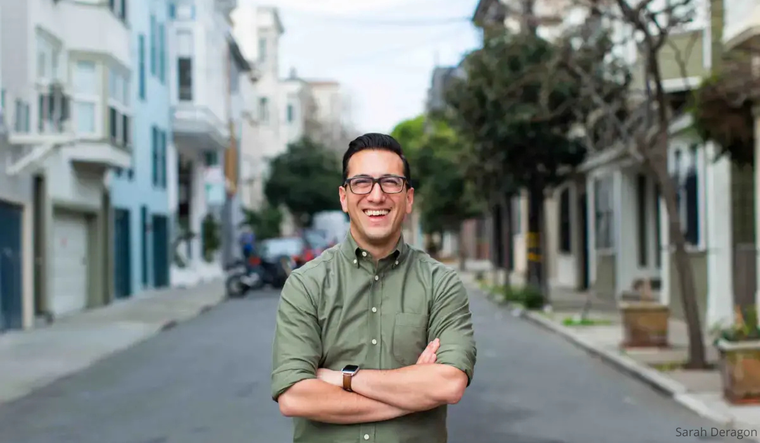Like Millions of Others, Activist Shannon Watts Woke Up at 50 With No Friends. Here’s How She Changed That—and What She Learned Along the Way
“Each friend represents a world in us, a world possibly not born until they arrive, and it is only by this meeting that a new world is born,” Anaïs Nin
A few years ago, while loading the washing machine, I had a podcast on in the background about friendship. The expert being interviewed said, “Everyone should have at least five people they can call in the middle of the night case of an emergency.” With a self-satisfied smirk I thought That is precisely why I had five children. But the expert continued… “And those emergency contacts cannot be members of your family.” Wait, what? I leaned against the washer and attempted to summon the names of five people I wasn’t related to who would answer a call from me in the middle of the night. I couldn’t even come up with one.
The irony of not having any close friends despite having founded the nation’s largest women-led nonprofit is not lost on me. Moms Demand Action is literally a laboratory for friend-making. During my travels across the country to visit volunteers, I met countless women who acted as if they’d known each other a lifetime but actually just met through their activism. They thanked me for starting Moms Demand Action because it had led them to the people who would be their friends for life. Their stories made me want to find my people, too… momentarily. As an introverted, shy, and inordinately busy person, I convinced myself I didn’t have the personality, time, or inclination to do all of the things it would take to make and keep friends.
But that podcast conversation about being able to phone a friend in the middle of the night stuck with me. A couple of years later, when I decided to step back from my leadership role with Moms Demand Action, I realized I was about to have an inordinate amount of time on my hands … and very few people to spend it with. By then, I was 52, and if I wanted to try to make new friends, it felt like now or never. So I did what I always do when I start a new project: I tried to learn as much as possible about how to do the thing before actually doing the thing. I listened to more podcasts, I bought books, I surveyed my followers on social media, and I asked my kids about how they made friends. And then, after studying up on something that seems to come intuitively to most people, I set out on my own journey.
I’ve learned a lot about making friends (and losing them) in the past year, and I’m sharing some of the tips I followed and the experiences I had here, just in case you find yourself in a similar predicament. TL;DR: I’m not too old to make friends, but making friends has been harder than I imagined:
1. Get in a growth mindset
This tip is all about being in the right frame of mind to make friends. I’m lucky to be married to the love of my life—an amazing human who is my best friend, confidant, coach, and cheerleader. When I started this journey I told John, “If you would just tell me whether you’re going to die before I do, I wouldn’t even have to bother with this exercise.” You can see how that mindset might be limiting. In fact, one person I was trying to friend said to me during a dinner, “I like you. I know you like me. But sometimes, I think you would be fine just being alone with your husband.” She wasn’t wrong. That conversation helped me realize I needed to put myself in a growth mindset and remind myself why I wanted friends in the first place. Here are some of those reasons:
Meaningful social connections: Data shows that, for women, friendship buffers the hardships of life’s transitions, lowers blood pressure, boosts immunity, and promotes healing. Research also shows that adults with strong social networks were significantly more likely to live longer. Social connections and friendships can also increase your resilience, productivity, and overall mental well-being. I want to live a long time and be mentally well.
Empowerment: Women keep each other’s secrets, boost each other’s confidence, serve as co-conspirators in their adventures. Women teaching one another and share information lead to personal growth and learning. Strong friendships with women can also provide a sense of belonging that is empowering and inspiring. I love driven, passionate women who encourage me to be my best self.
Safe spaces: Friendships provide a safe space for women to share their thoughts, feelings, and experiences without judgment. John is wonderful, but he’s not a woman. There are conversations I want to have with women that my straight, Baby Boomer husband is simply not interested in (just as I’ll never be interested in golf). Besides, studies show the average female relationship lasts 16 years, which is six years longer than the average romantic relationship. God forbid something ever happens to John, I will need a safety network to help me navigate being alone.
Once I codified my reasons for making friends—including the very important and real benefits that go along with friendship—I felt myself move from reluctant friender to enthusiastic participant.
2. Commit to making an effort
The reason making friends when you’re older seems so hard is that making friends when you’re older is, in fact, so hard. A lot of women my age are either busy with their own families and friends they’ve had forever, or they work full-time, or maybe they want to make friends, but (like me) they don’t know where to start. At one point in the last year, I thought I’d made a bunch of friends over the summer, but then school started and they were nowhere to be found. As an empty nester, back-to-school doesn’t change my schedule anymore, and I knew I’d need to find some friends who either had adult kids or were retired.
Just like it takes work to keep my marriage healthy, I’ve learned it takes work to keep friendships going—it requires intention, proactivity, conscious commitment, and pushing yourself outside your comfort zone. This does not come naturally to me! Maybe because I’m standoffish or because I don’t have any memory muscle of friendship, I often have to ask myself, “What would a friend do right now in this situation?” The answer is almost always, “REACH OUT.” So, if I haven’t heard from one of my potential friends in a while, I’ll send them a “How’s it going?” text. Or I’ll set calendar reminders to invite women to brunch or dinner or for drinks. Or I’ll be sure to put reminders in my phone of people’s birthdays.
Making new friends as an adult also means being open to trying new things. We can get set in our ways in midlife, making new experiences seem more intimidating than they used to. But that’s exactly how you deepen connections and learn new things about yourself and your friends. Did I recently go on a trip to Mexico and do mushrooms while dancing in a pool for hours to 80s music? Maybe. I’m neither confirming nor denying that here. I’m just saying I’ve come to realize there are a lot of experiences I missed out on in my twenties because I had little kids that I’m getting to check out in my fifties.
3. Be vulnerable
This has been by far the hardest part of this journey. I’m not a big fan of vulnerability—it’s my kryptonite. Opening myself up to (what I perceive as) judgment or rejection was definitely my biggest fear going into this journey. But the reality is that not everyone you try to make friends with will become your friend; research shows making a casual friend takes 50 hours on average, while close friendships take 200 hours. One weekend, I went on a retreat with two dozen total strangers hoping to make lots of new friends; instead, I left the retreat with lots of phone numbers and promises to stay in touch, but just one real new friend. But when you think about the odds, making even one friend was significant.
Being vulnerable also means not giving up when a friendship doesn’t work out. In one instance, I thought I’d made a good friend only to realize they didn’t like me as much as I liked them. And then, I watched on Instagram as they shared photos from a party they hosted that I wasn’t invited to. I felt like I was back in eighth grade, and that experience helped me understand how my own kids felt growing up and feeling excluded when they saw people getting together without them online. It hurt my feelings, but that doesn’t mean my exclusion was malicious or unkind—she just wasn’t that into me! I’m certain that will happen again—and it will hurt again—but I’m committed to staying vulnerable through it all.
In the past year, I’ve added about five women as friends to my life—not best friends, but women I really enjoy spending time with and want to get to know better. I’m not sure I’ve met anyone yet who would drop everything in the middle of the night to come help me with a crisis, but maybe in a couple more years I’ll find the fortitude to ask if they’ll add me to their emergency contact call list. I’ll let you know how this next year of friend-making goes.
First published on Shannon’s Substack, Playing with Fire.
Shannon Watts is a gun violence prevention activist and the founder of Moms Demand Action, the nation’s largest grassroots group fighting against gun violence. Learn more at MomsDemandAction.org and follow Shannon on X (formerly Twitter) and Instagram.
Please note that we may receive affiliate commissions from the sales of linked products.



